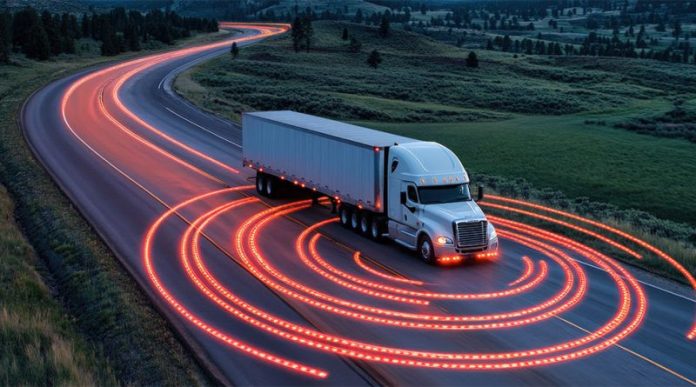International Motors has taken a major step in autonomous trucking with the launch of its second-generation customer fleet trials in Texas. Partnering with PlusAI, the initiative signals a turning point for freight transport as the industry prepares for commercial deployment of self-driving trucks by 2027. The trials are being closely watched by fleet operators, policymakers, and competitors as the technology nears large-scale adoption.
From beta to real-world
The trials are powered by PlusAI’s SuperDrive, an AI-based autonomous driving system refined through years of development. In late 2024, the TRATON Group, which includes International, Scania, and MAN, launched Beta 5.0 of SuperDrive after extensive testing in Europe and the US. The rollout highlighted Texas as a critical deployment hub because of its heavy freight traffic and supportive infrastructure.
The system integrates a factory-installed sensor suite, upgraded compute power, and International’s S13 Integrated Powertrain, designed to enable safe and efficient hub-to-hub operations. By moving from controlled road tests to customer fleet trials, International and PlusAI are validating the performance of autonomous technology under daily logistics conditions.
Hitting the ground with fleet trials in autumn 2025
The fleet trials are operating along the I-35 freight corridor between Laredo and Dallas, one of the busiest trucking routes in the US. Managed from International’s autonomous hub in San Antonio, the program is set to provide valuable insights into operational readiness.
The trucks, based on International’s LT Series, are factory-built with integrated autonomous hardware and software rather than aftermarket retrofits. This distinction is expected to improve scalability and safety validation, accelerating the path to commercialization. For customers in the trials, the program offers a clear view of how Level 4 autonomy could reshape long-haul freight operations.
PlusAI’s key performance indicators
Progress is reflected in PlusAI’s publicly reported performance metrics. By the first half of 2025, the company had achieved 86 percent Safety Case Readiness, measuring how well its system handles safety-critical scenarios. At the same time, 98 percent of miles driven were fully autonomous, while 76 percent of trips required no remote assistance.
These figures show steady progress toward reliability and self-sufficiency. They also create a framework for evaluating readiness, giving regulators and fleet operators more confidence in the system’s maturity.
Navigating toward commercial pilots
Even with strong results, safety remains the central concern for fleet operators and regulators. International and PlusAI have built safeguards that include remote assistance for rare but critical events such as tire blowouts or mechanical failures. This layered approach ensures that autonomy does not compromise safety, even in unexpected situations.
By combining rigorous testing with customer trials, the companies aim to build the trust needed for broader adoption. For logistics providers, the value lies in efficiency, predictability, and reliability, all of which are critical for freight operations.
Industry moves in the same direction
International’s initiative is part of a wider competitive field. Torc Robotics, backed by Daimler Truck, recently established an autonomous trucking hub near Dallas-Fort Worth to advance its pilot programs. Other players are mapping similar freight corridors across the US, reflecting a race to capture early market share.
For International and PlusAI, the advantage lies in their combination of OEM integration and proven performance metrics. Their partnership through the TRATON Group provides global reach, while Texas offers an ideal proving ground for scalable deployment.
The current trials set the stage for a commercial launch of factory-built, Level 4 autonomous trucks in 2027. If successful, the initiative could transform freight logistics by enabling continuous hub-to-hub operations with minimal human intervention.
For the trucking industry, the shift may lead to lower operating costs, improved safety, and more consistent delivery times. For regulators and the public, it raises questions about infrastructure, labor impacts, and long-term trust in automated systems.


